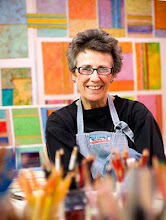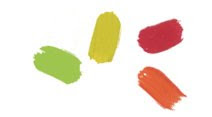I count amongst my friends people with all levels of education and of life experience. But I cannot think of any that would readily enter into a discussion of death. It’s easier to converse about sex, money or the skeletons in the closet.
I want to know more about how people regard it and their feelings about it. I think if I could get used to talking of it and hearing others on the topic, I might find myself a little more comfortable and resigned to what undoubtedly will be my fate. The two people who have entered into the topic with me were helpful and I turn to the memory of those talks sometimes. My late ex-husband spoke of his return to the earth as if that were a good place to be. He grew up on a farm and was known to embrace trees. I grew up in Brooklyn; we went to Prospect Park or the Botanical Gardens to see trees. A therapist spoke to me of death as sleep — without dreams. Their untroubled acceptance of the inevitable was helpful but not quite enough.
Since I was ten years old and saw photos taken in the extermination camps of the second world war, I have walked hand in hand with death. Not threatened; I have always expected to die a natural death. But always aware of the limited time I would have. My appreciation of that reality has influenced every choice I have made and every risk I have taken. While it was an early and traumatic awakening, I am grateful for it. Every moment of my life, difficult or comfortable, has been okay. Every person I have loved has been cherished. I am endlessly grateful for this life and plan to leave it only against my better judgment. Maybe even kicking and screaming as I go.
In his commencement remarks to Stanford graduates in 2005, Steve Jobs said this:
"Remembering that I'll be dead soon is the most important tool I've ever encountered to help me make the big choices in life. Because almost everything--all external expectations, all pride, all fear of embarrassment or failure--these things just fall away in the face of death, leaving only what is truly important. Remembering that you are going to die is the best way I know to avoid the trap of thinking you have something to lose. You are already naked. There is no reason not to follow your heart."
In his last piece of life, Jobs opted to spend the time he had left with his family. When his biographer asked why he wanted his story written, he said he wanted his children to know him, “I wasn’t always there for them, and I want them to know why and to understand what I did”. Maybe if he had his life to live over he would spend more time with them. Then again, maybe not.
Life in the studio is good. I usually need to squelch the monster that looks over my shoulder and derides my efforts saying something like: “You think anybody is going to believe that’s a painting?”. I do need to sell the work so the monster is always ready to pounce. But somehow, maybe because I’ve been thinking along the lines of the comments above, he has not made an appearance for this project. I’m moving along smoothly and with greater than ever freedom. It’s that what-the-hell attitude that supports dicey choices.
In the image above are two examples of the series in progress now. It’s about small painted panels adhered to larger painted panels, 23” x 17”, mixed media. I am doing about forty of them to be mounted on archival board. There are some bigger ones that will be adhered to canvas. I will present them here as they come together.
Alice Walker – “Life is better than death, I believe, if only because it is less boring, and because it has fresh peaches in it.”














This makes me think about the time I was chatting with a friend who was a hospice nurse (now retired). We got to having a fairly interesting chat about her job. After we'd been talking for a while, she stopped and looked at me with no small amount of surprise, "Normally, people just look uncomfortable and change the subject when my job comes up. I don't often get to talk about work. This is unusual!"
ReplyDeleteI think about eventual oblivion fairly often. It's not a pleasant thing to ponder. I'm also starting to feel a bit uncomfortable about the material mess I could inadvertently wind up leaving behind for others to clean up. This happened with someone I knew--the overcrowded studio that got left behind was a nightmare for the survivors. I see that as the legacy I will leave. People will be cursing my memory as they fill dumpsters with embarrassing detritus from my life.
Oh, dear. I'd rather think of "eventual oblivion" than the enormous mess I will leave. Unless I do something about it now.
ReplyDeleteIt is a disturbing thought, isn't it? At the moment the decorative motif in my studio seems to be Nouveau Apocalyptic. It got a bit out of hand as the frenzy built toward my opening. Now I'm slowly trying to put it all back together. It's not pretty.
ReplyDeleteDisturbing, yes. Maybe it's about transitions and change. I'm going to give some thought to that.
ReplyDeleteJoan, being that I currently have one of my sisters in hospice, I was glad to see that you are not afraid to bring up the topic of death. It is definitely a powerful thing; as is birth. Maybe the two are not so different. The thought of my sister dying is bringing up, for me, questions about the other side. It may actually be another adventure altogether. Death is a door closing on life as we know it, but is it simultaneously opening a different door?
ReplyDeleteI will be leaving soon for LA to go see my sister; this is not without some dread. To see a body deteriorating is not a pretty sight. But, on the other hand, sometimes a dying person can surprisingly give you something very special and unexpected.
Thanks for bringing up the topic of life and death. It is the great equalizer; we all will face this someday. Might as well get used to it and live as freely now as we can.
Jane Fusek
Thank you for the note, Jane. How sad to lose a sibling. You sound as if you know how to face the loss with equanimity. I wish you and your sister well.
ReplyDeleteDear Joan, death and dying is one of the topics that move me most in my every day life, has done so for many years. I grew up in the midst of it for a long time, all my childhood and young years....rather visually and as a heritage of the past years than physically. I was born a couple of years after the II.WW finished, in Czechoslovakia and although my family didn't loose anyone in the war or concentration camps, the memory of death was everywhere, everyone around had a story to tell about the dead and lost.....then the communists took over and used the war imagery for our "education" showing us endless documentaries about the Nazi camps, but also the Russian soldier-heroes in death combats against the Nazi monsters. Soon after we began to know about the millions of the assassinated by Stalin, the gulags, etc.
ReplyDeleteThe post-war death panorama was going on and on....the political trials of the fifties where so many innocent people were executed or died more slowly in jails......and the political, social, existencial forms of death and persecution went on and on into the sixties.....a constant and systematic training to live life with death and the fear of it at your back....
Many years later, living in another country I was influenced by Buddhist teachings, especially their dealings with death and dying. Not as a horror story from hell this time but a daily "training" or preparation for dying and afterlife.....it made a complete sense to me....I never had any religion that sustained my faith and hopes but the meditation on one's own dissolution was very meaningful to me....even without the belief in the afterlife.......
I wanted to "get ready", not just for my own ending but to help my dear ones at the end of their life journey. Took courses on death and dying. My mother, my mother-in-law, spending their last months/years with them while being their caregivers.....an incredible, tough and a very deep time, I wouldn't want to miss a minute of those experiences.....although I must admit that one can never be "prepared" enough....
I live a pretty harmonious life in silence as a painter in our beautiful part of the world (Humboldt), and this is as close to paradise as i can imagine.But "Death" is still my companion, perhaps even more now growing older. I think about it every day, I meditate on it......I read about it, and I talk with my husband about it...if I were to do something else, I might like to work in a hospice.....although who knows, I don't like institutions....but that's another topic.....
Thanks Joan, for talking about it......
P.S. And what do I think I've learned after all my experiences with death and dying? I feel that it is such an essential part of my life to think, meditate and talk about it that I'd live half a life without it......However, I do miss the cultural and symbolic aspects to support my individual awareness. Living many years in Mexico was so very satisfying in that respect.......
Thank you for the thoughtful response to my blog essay about death. Your sad experience was very different from mine but I think the effects are similar. You are always aware of the closeness of death. And in the long run, what a blessing to forever be grateful for the life you have.
ReplyDelete